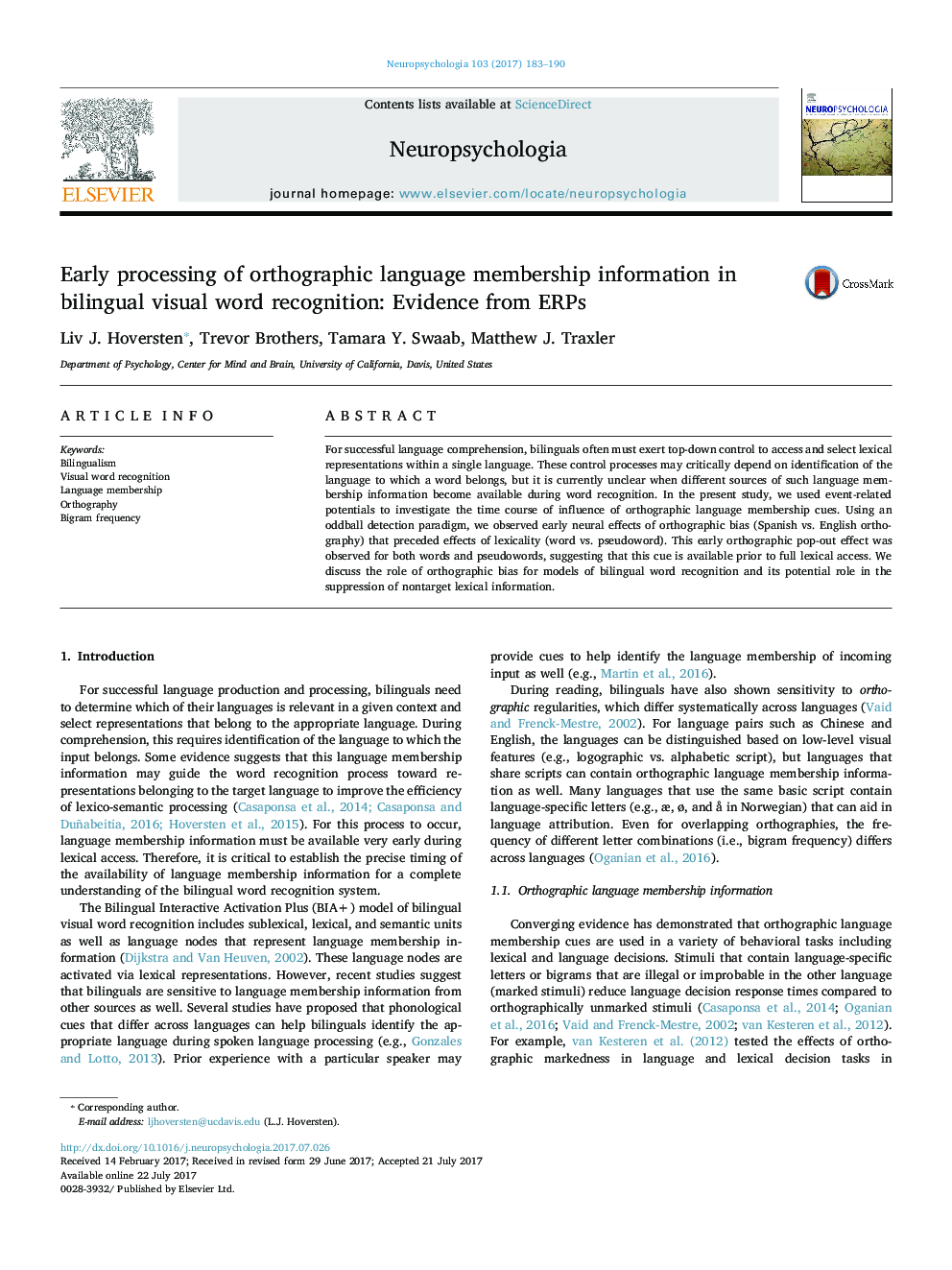| Article ID | Journal | Published Year | Pages | File Type |
|---|---|---|---|---|
| 5045102 | Neuropsychologia | 2017 | 8 Pages |
â¢Orthographic cues are used to identify language membership of words and pseudowords.â¢Orthographic language membership cues are available prior to lexical information.â¢The early availability of orthographic cues may enable partially selective access.
For successful language comprehension, bilinguals often must exert top-down control to access and select lexical representations within a single language. These control processes may critically depend on identification of the language to which a word belongs, but it is currently unclear when different sources of such language membership information become available during word recognition. In the present study, we used event-related potentials to investigate the time course of influence of orthographic language membership cues. Using an oddball detection paradigm, we observed early neural effects of orthographic bias (Spanish vs. English orthography) that preceded effects of lexicality (word vs. pseudoword). This early orthographic pop-out effect was observed for both words and pseudowords, suggesting that this cue is available prior to full lexical access. We discuss the role of orthographic bias for models of bilingual word recognition and its potential role in the suppression of nontarget lexical information.
